There's something about two-time National Award Winning Pradip Kurbah's films that leave a permanent impression on the mind, particular films like 'Onaatah' and 'Ri: Homeland Of Uncertainty'. 'Ri' was the first film in the Khasi language to win a National Award.
One of my very first works includes working as the chief assistant director of Raju Chacha... After so many years I'm collaborating again on a Bollywood project for 'The Maya Tape' as the executive producer

While being familiar with his oeuvre, the filmmaker's passion for cinema reflects in his films and the way he talks about them. To average town-bred Northeasterns, even if they're not exactly cine buffs - Pradip Kurbah needs no introduction.
The Moviean tried to dig out the real man behind celluloid. Excerpts:
There are high expectations from the talented director and now, he is focusing on his film 'Iewduh' that is slated for a release next year.

The director remarks, "It's a little early to talk about the project. I'm portraying human emotion and relations and it has a very personal touch to it. The whole setting of the film is inside the largest market of Meghalaya. It's more about people inside the market, their relationships, their stories, and their decisions. The market is just at the backdrop of the film. We haven't even decided on the cast. We'll be taking a last call sometime around March."
For a change, I'm planning to make the film with no music this time and we're going to sync the sounds in the market itself. Going for synced sounds for such a film will be a challenging task for us, but we are enthusiastic about it. I collaborated with Amrit Pritam because I can trust him on this.
Pradip further mentions that 'Iewduh' will explore similar concepts like ' Ri' and 'Onaatah'. In a world where every filmmaker wants to touch glamour and explore and own a common favourite haunt of the glitterati, Pradip Kurbah is a rarity. He prefers to stick to simplicity and carve out a niche of his own.
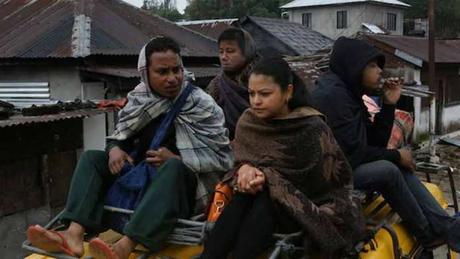
"We understand each other so well and I never felt the need to branch out. Ater the formation of a team once you start working with a set of people and start understanding each other for so long, then the entire process becomes a lot easier. Merlvin is not working in this film. I know Pradeep since the time he was working as a light man, then he became an assistant cameraman. His first film was also shot with me. I am also going to work with the noted film exhibitor, distributor and producer Shankar Lall Goenka, under the banner of his film production house 'Shiven Arts'. Shankar is very supportive and has been a part of National Award winning movie like 'Ajeyo' and the much acclaimed 'Dau Haduni. Goenka is also recipient of the Dada Saheb Phalke Academy award for his contribution to cinema in the northeast and this will be his first Khasi film. I would also want to collaborate with Raja Ghosh again because I really like him as an actor. It all depends on timings. I would want to collaborate with artists from Nagaland, Assam, Manipur but the budget is a huge disadvantage. "
The screening of my film in Manipur was dream come true and it was a big deal for me. I had Aribam Sir in Shillong watching Onaatah, and that accounted as one of the most memorable moments in my life.
While ' Ri' and ' Onaatah ' were shot using a DSLR camera, the director firmly believes that technology can never interfere with what you want to create. You might have limitations, but that will never stop you from giving a voice to your story and in creating good compositions.
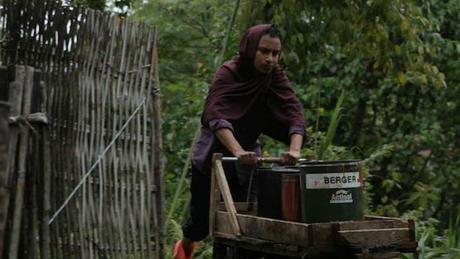
He adds, "We haven't decided on what camera we'll be using yet. With the kind of budget we work in, we can't opt for high-end cameras because cost determinants become cumbersome for us. At the end of the day, I believe if you have a good man behind the machine, no matter which camera you use, your job gets done. "
Pradip prefers to wait and watch, read and write. And then finally make a film. He doesn't rush into projects without proper analysis and research. He confesses,
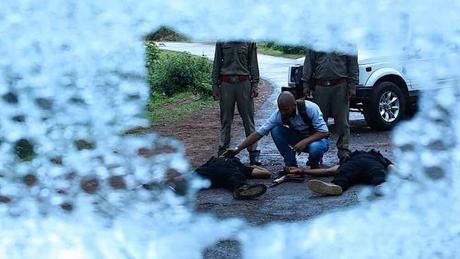
"I spend a lot of time on my scripting and pre-production because that's very important to me. The entire process of scripting and pre-production takes me about eight months. Whereas shooting does not take time and I complete it within a month's time. The proposed timing is higher than the time we actually consume. So I give more time to pre-production. For 'Iewduh' the planning has been going on for the last one year. This year we are finally going ahead with the shoot. I go for rehearsals with my artist because our budget doesn't allow us to sit idle during the shoot. Once we go for the shoot, that means we have to go ahead as planned. 'Iewduh' took time because I was not very happy with the script. Now, we have locked the script."
...the deal is we cannot make films for ourselves, we have to make it for the people. You need to share your stories, you need to take the film out. Most of the creative bunch make films, but they do not screen it anywhere and prefer keeping their films to themselves.What is the point of making a film then? If you make films, sit in cafes and screen it there for your friends, then it remains there and ultimately the film dies.
He created headlines after announcing that he'd base his next project on the noted criminal and jailbreak mastermind Fullmoon Dhar. This is what the noted filmmaker had to say when we questioned him about it.
"The project got shelved because a majority of people were not in favour of it. My producer suggested not getting into any kind of controversy and it's better to call it off for the meanwhile and focus on another project. For now, the project wont be taken forward. There is a possibility that it might happen again, but not with the same title. Perhaps the story and concept are likely to stay the same. "
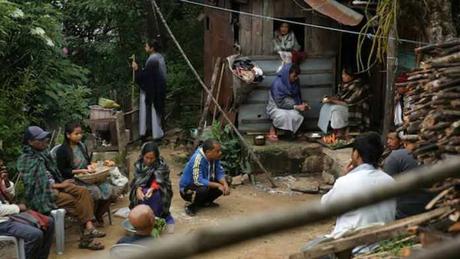
" Paban is very right about the statement. We need to look beyond Meghalaya, and beyond Northeast. I screened ' Onaatah ' almost thrice in Manipur. I believe that as people in Northeast, we don't want to watch each other's films. We don't have the culture of exchanging films and carrying these stories throughout the region. From Manipur to Assam to Assam to Nagaland and likewise. If we don't watch each other's films then how do we expect the mainland India to watch our films? We need to bridge the gap among ourselves and that's very important. We should try to look for means to open a market for the exchange of our own films. Because filmmakers like us can't depend on people from our own state to watch our movie. We all have to look for other avenues to recover our money. How long will I travel with my film from village to village to screen my films? I have done that for a long time now. But it's time, we look beyond this."

He gives us another interesting insight and mentions,
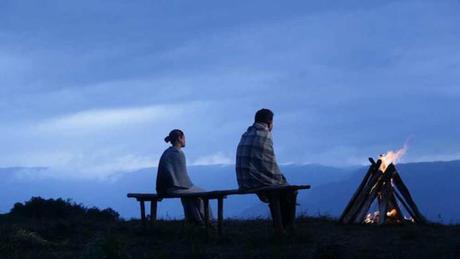
We asked Pradip about his relation to Bollywood and he replies,
"I came to Mumbai with the intention of learning filmmaking. I wanted to learn but I didn't want to stay here. I wanted to come back to Meghalaya and make films here. I had done a lot of work with various directors. I've also done Telugu films. One of my very first works includes working as the chief assistant director of Raju Chacha, starring Ajay, Kajol, Rishi Kapoor and Sanjay Dutt. After so many years I'm collaborating again on a Bollywood project for 'The Maya Tape' as the executive producer."
I'm so keen on bringing Paban's film to Shillong on the screens. I want people here to watch the films. I have tried but I don't know how to go about it. I can't do all of this alone but I need a support from the government. I feel the right people should get into this and intervene is the NEC. We have people who are looking after the development of the region, why don't we address this aspect of development as well.
Speaking to Pradip is an intriguing experience. He knows a lot about his subject and where he is coming from. He beams when we speak of culture and collaboration. He has a dream of uniting the people back in North-East and creating a united filmmaking fraternity.
"Someone has to take the step, that initiative should start from somewhere. I'm so keen on bringing Paban's film, Loktak Lairembee, to Shillong on the screens. I want people here to watch the films. I have tried but I don't know how to go about it. I can't do all of this alone but I need a support from the government. I feel the right people should get into this and intervene is the NEC. We have people who are looking after the development of the region, why don't we address this aspect of development as well. Paban pitched in the idea that South East Asian countries could be a good market for North-Eastern films, but again, someone has to take a step and take the movies from one place to another. Most filmmakers are making good films but they don't look beyond their respective states. There are few filmmakers who are trying different things and trying to make an appeal to a wider audience. Dominic and Wanphrang make films and take it to other places outside North-East and the country as well. Rima Das' ' Village Rockstars ' is doing many festival rounds across the country and the globe, but how many people from North-East have actually seen the film. Not a lot, because it's not screened in the region."
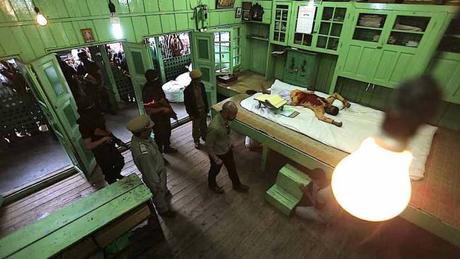
"We grew up watching and talking about Manipuri and Assamese films; about Aribam Sir and Jahnu Sir's films. The screening of my film in Manipur was dream come true for and it was a big deal for me. When I had Aribam Sir in Shillong watching Onaatah, that accounts for one of the most memorable moments in my life. We should start looking at ourselves. People all over India are making great films but it's not like we are lagging anywhere behind. There are many good filmmakers who deserve opportunities.
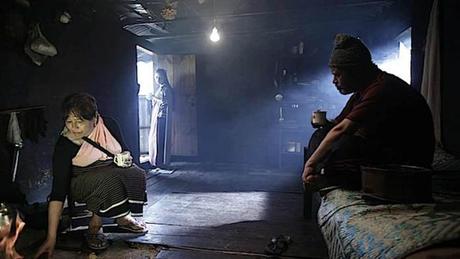
"And does Meghalaya lack content-driven cinema that discourages people from watching regional films?", we ask.
He replies, "There's cable, satellite channel, youtube and there is a knowledge boom. There are so many options for the audience to choose from. When you are making a film, you need to keep in mind what the audience is actually watching. If you don't live up to the expectations of what the audience wants then things get difficult. So when you are screening your film in the Shillong city, then your target is your city crowd. The villagers like earlier days cannot come to the city to watch your films. There's the cost reason, the ticket prices are high and then there is travelling and food expenses. So the villagers prefer to watch it at their own space, which I am trying to do. If you can't come to watch my films, then I will bring my film to you."
He further went on to narrate how the people in Meghalaya wanted to watch 'Kamon Bajwat' again. The director seemed to have a conversation with the distributors and they decided that would screen the film again after nearly twenty years. About five Khasi films release yearly.
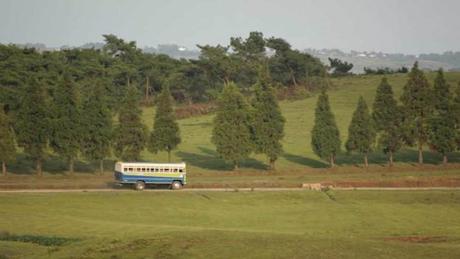
Pradip mentions the obstacles faced by the filmmakers, "In totality, there are only three multiplexes in Shillong and they lie close to each other. How will people from the village areas come here? It's the same scenario in Assam as well. The audiences know by the look of the trailer if a film is good or not. You can't blame the audience, if you are not making a good film, then they will not watch the film."
We then asked him about the underground creative society in Shillong.
He quotes, "There are lots of good filmmakers here. But the deal is we cannot make films for ourselves, we have to make it for the people. You need to share your stories, you need to take the film out. Most of the creative bunch make films, but they do not screen it anywhere and prefer keeping their films to themselves.What is the point of making a film then? If you make films, sit in cafes and screen it there for your friends, then it remains there and ultimately the film dies."
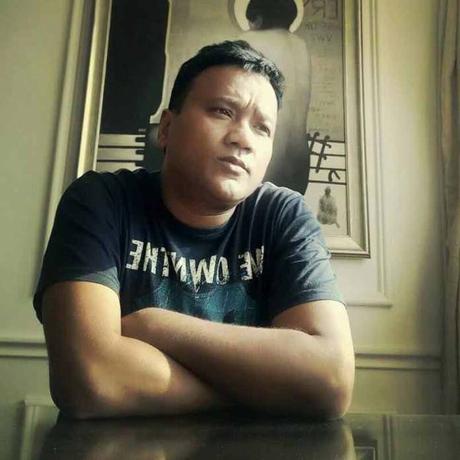
As a conclusion, some words of wisdom for young filmmakers from the region, "Nothing comes easily, you have to really work hard for it. Whatever you do, do it honestly and do it from your heart, because that reflects on the screen. The rest depends on luck."
WATCH the trailer of Onaatah:
WATCH the trailer of Ri:
